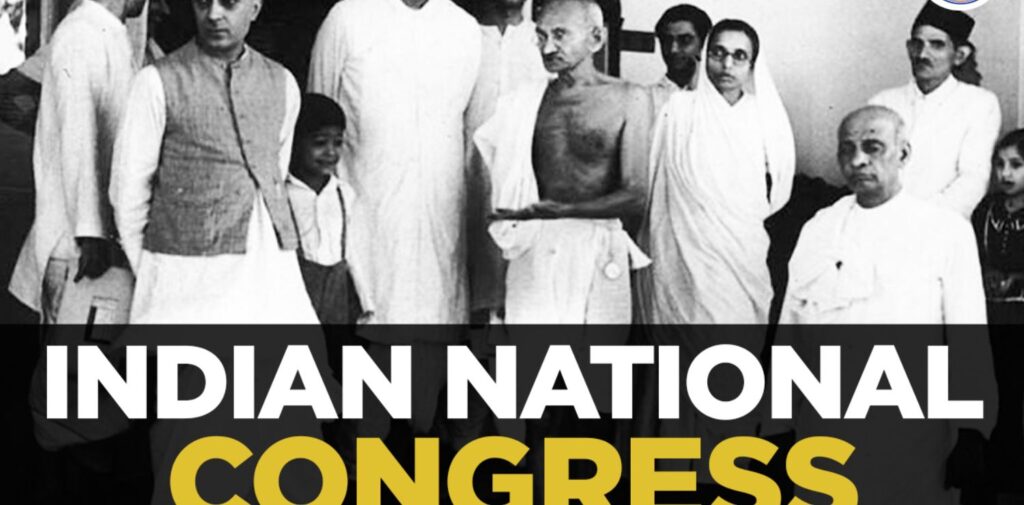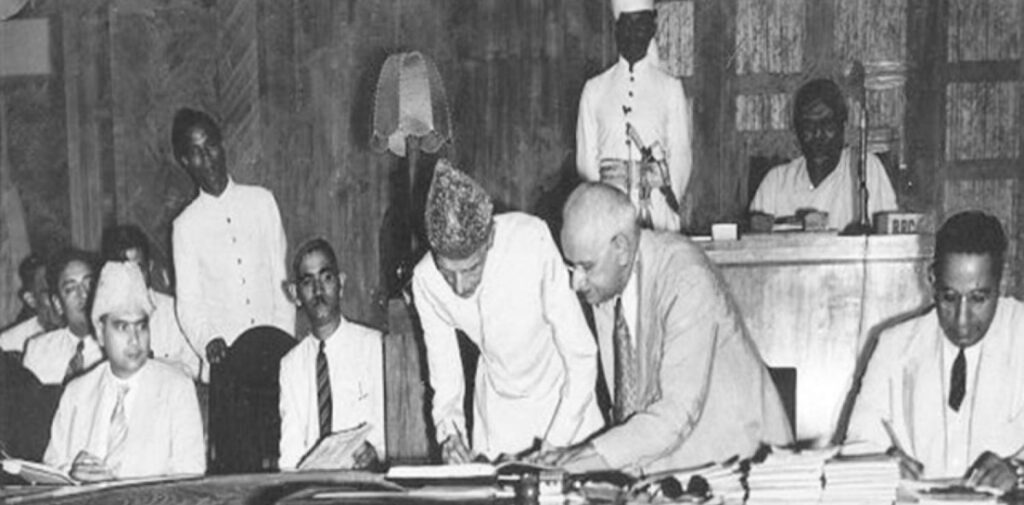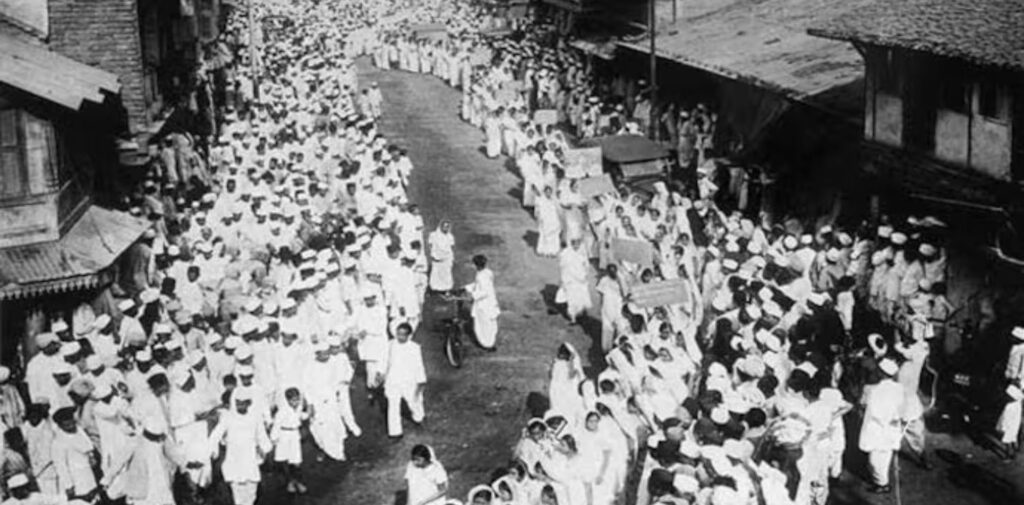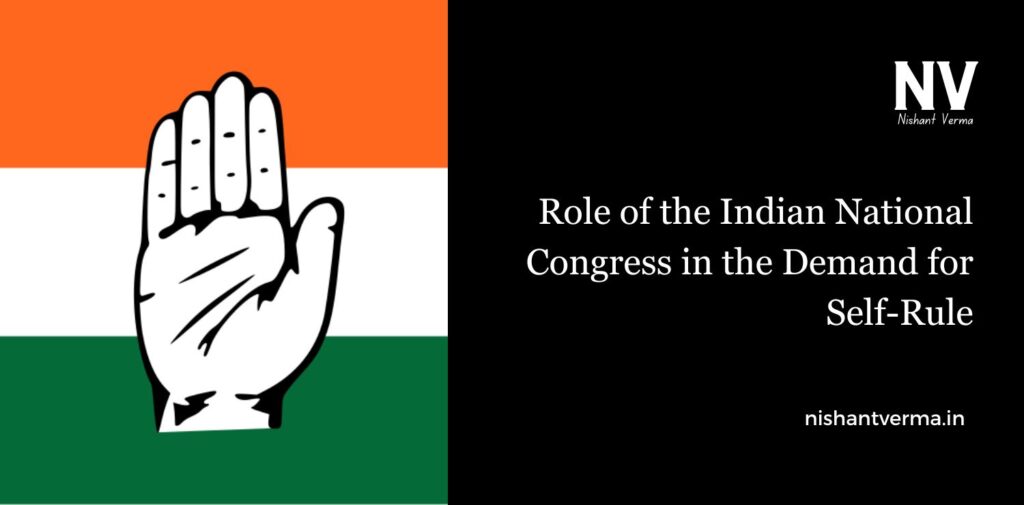The Indian National Congress (INC) is one of the most important organizations in the history of India. It played a major role in the struggle for India’s freedom. But what exactly was the role of the Congress in demanding self-rule from the British? In this article, we will explore how the Indian National Congress worked towards India’s independence and how it became the voice of the people in their fight for self-rule.
What Was the Indian National Congress?
The Indian National Congress (INC) was a political party formed in 1885. It started as a small group of people who wanted to help India grow and develop under British rule. In the beginning, the Congress was not asking for independence. Instead, its members wanted to make sure that the British treated Indians fairly and gave them more rights. They wanted things like better representation in the British government and more chances for Indians to hold important jobs.
But as time went on, the Congress realized that the British were not interested in giving Indians a real voice in their own country. Over the years, the Indian National Congress began to demand more—ultimately, full independence from British rule.

Early Years of the Indian National Congress
When the INC was first formed, its main goal was to speak up for the rights of Indians under British rule. Many of the early leaders of the Congress, like Allan Octavian Hume, Dadabhai Naoroji, and Gopal Krishna Gokhale, believed that the British were not treating Indians well. They wanted to convince the British to make changes that would benefit the people of India.
In the early years, the Congress worked with the British government to make things better for Indians. They asked for more Indian representation in the British government and better opportunities for Indians to get government jobs. But despite their efforts, the British government was slow to make any changes.
The Shift Towards Self-Rule
In the late 19th and early 20th centuries, the attitude of the Indian National Congress began to change. Many Indians were tired of waiting for the British to treat them fairly. Leaders like Bal Gangadhar Tilak, Bipin Chandra Pal, and Lala Lajpat Rai started to push for a more direct approach to gaining freedom for India.
- Bal Gangadhar Tilak: Tilak was one of the first leaders to demand full independence from Britain. He believed that Indians should have the right to govern themselves. His famous slogan, “Swaraj is my birthright,” became a rallying cry for those who wanted self-rule. Tilak’s ideas were radical at the time, but they helped inspire a new generation of leaders and common people to join the movement for independence.
- Bipin Chandra Pal and Lala Lajpat Rai: These leaders were also part of the larger movement calling for self-rule. They believed that India needed to fight for its independence instead of simply asking for more rights from the British. They started organizing protests and movements to show the British that Indians were ready to govern themselves.
The shift towards demanding self-rule became clearer after 1905 when the British government decided to divide Bengal into two parts, hoping to weaken the unity of the Indian people. This move angered many Indians, and it united them in the fight for independence. The Congress started to demand “Swaraj” (self-rule) as their primary goal.

The Congress and the Struggle for Self-Rule
By the early 20th century, the Indian National Congress had become a powerful voice for the people of India. They were no longer just asking for small reforms from the British. Instead, they were calling for complete self-rule for India. This was the beginning of a more intense struggle for independence.
- Partition of Bengal (1905): The British decision to divide Bengal into two parts was a turning point for the Congress. This move was seen as a divide-and-rule tactic to weaken Indian unity. The Congress, under the leadership of people like Lala Lajpat Rai and Bipin Chandra Pal, strongly opposed this decision. It led to mass protests and strikes all over India. This was one of the first major movements led by the Congress to demand that the British leave India.
- Home Rule Movement (1916): Another important event in the history of the Indian National Congress was the Home Rule Movement, which was launched by Bal Gangadhar Tilak and Annie Besant. This movement aimed to give India more self-governance. The Home Rule Movement was hugely popular and brought thousands of people into the independence struggle. It pushed the British government to think about granting India more control over its own affairs.
- World War I and the Montagu-Chelmsford Reforms (1917): During World War I, the Indian National Congress agreed to support the British war effort, hoping that the British would reward India with more self-governance in return. The British government promised some reforms, but these were not enough for the Congress. The reforms did not give Indians the full self-rule they were asking for, and this led to disappointment among the people.
- The Non-Cooperation Movement (1920-1922): One of the most important movements led by the Indian National Congress was the Non-Cooperation Movement, which was started by Mahatma Gandhi. Gandhi believed that the best way for Indians to fight for self-rule was by peacefully boycotting British goods, schools, and courts. He called on Indians to refuse to cooperate with the British in any way. The Non-Cooperation Movement spread across the country and brought millions of Indians into the fight for independence.
- Civil Disobedience Movement (1930): The Civil Disobedience Movement was another major movement led by the Indian National Congress. It was started by Mahatma Gandhi after the British imposed a tax on salt, which affected poor Indians the most. Gandhi and his followers marched to the sea to make their own salt, in defiance of British laws. This was a powerful act of civil disobedience and became a symbol of the Indian struggle for self-rule.
The Role of Key Leaders in the Congress
The Indian National Congress was led by many great leaders who played a key role in demanding self-rule. Some of these leaders include:
- Mahatma Gandhi: Gandhi was the most important leader in the Indian struggle for independence. His philosophy of non-violence and peaceful protest inspired millions of Indians to join the fight for self-rule. His leadership in movements like the Non-Cooperation Movement and the Civil Disobedience Movement made him a hero in India and around the world.
- Jawaharlal Nehru: Nehru was another key leader of the Congress. He became the first Prime Minister of India after independence. Nehru worked alongside Gandhi to unite the people of India and lead them towards self-rule. He was a strong believer in the idea of a modern, democratic India.
- Subhas Chandra Bose: Bose was a leader who believed in more radical methods to achieve independence. While he disagreed with some of the methods used by the Congress, he was deeply committed to the idea of self-rule for India. He formed the Indian National Army (INA) to fight against the British during World War II.

The Final Push for Independence
The Indian National Congress continued to push for self-rule throughout the early 20th century. After years of protests, movements, and negotiations, the British government finally realized that India could no longer be ruled in the same way. The Congress and its leaders had made it clear that India wanted freedom.
In 1947, after many years of struggle, India finally gained independence. The efforts of the Indian National Congress, along with the sacrifices of millions of Indians, brought an end to British rule.
Conclusion
The Indian National Congress played a crucial role in the demand for self-rule in India. From its early days, the Congress worked to improve the lives of Indians under British rule. As time went on, the Congress became the voice of the people, demanding full independence from Britain. With the leadership of great figures like Gandhi, Nehru, and Bose, the Congress united the people of India in their struggle for freedom. Today, the Indian National Congress is remembered as one of the most important organizations in the history of India’s independence.




